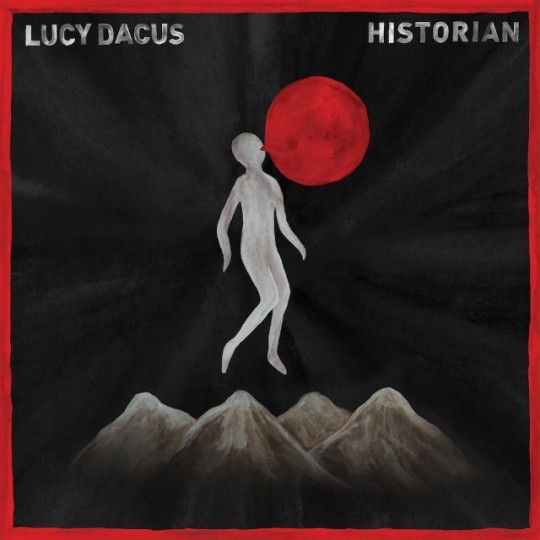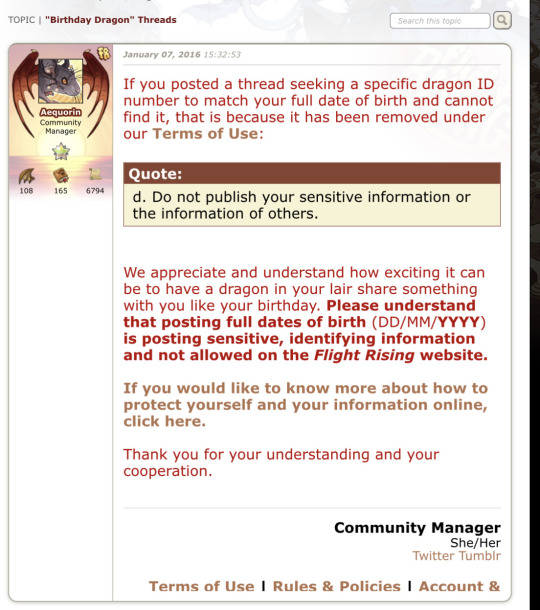#historian 2018
Text



Boygenius by Joe Calixto
11.30.2018 / The Wiltern / Los Angeles,CA
#boygenius#boygenius 2018#phoebe bridgers#julien baker#lucy dacus#historian lucy dacus#historian#stranger in the alps#turn out the lights julien baker#turn out the lights#indie rock#indie music#2010s#alternative#alternative rock
408 notes
·
View notes
Note
My friend was wondering about this interview but I'm not sure I've heard if it could you help me?
"what’s that one interview where Calum is all “he ain’t worth your time girl”"
That would be the "Agony Uncles" advice video from 2018! The part you're looking for is about 50 seconds in 😌
youtube
#i swear there used to be a better quality version on YouTube but this is all i could find today so i also linked the OG video from Facebook#ask#lxvelyluke#video#i don't remember any of my historian tags lol#2018 interview
10 notes
·
View notes
Text


i think im being gaslit?
#not really what gaslit means but thats okay it lost most of its meaning back in 2018 anyway#that year might be incorrect im not a historian
10 notes
·
View notes
Text
im just calling bc im used to it 🙄 and you pick up bc ur not a quitter 😤‼️
2 notes
·
View notes
Text

William B. Robison, “The Bard, the Bride, and the Muse Bemused: Katherine of Valois on Film in Shakespeare’s Henry V”, The Palgrave Book of Shakespeare’s Queens (eds. Kavita Mudan Finn, Valerie Schutte, Palgrave Macmillan 2018)
#robison points out in a footnote that the biographies of her out there add very little to the historiography around her#(and of the biographies he cites only one gives her a lengthy treatment - the rest are from compilation biographies of english queens)#(this was also in 2018 so he's not referring to katherine j. lewis's chapter on her which came out this year)#honestly i find this to be very true - that she's always discussed with the same kind of narrative#(i read 3/4 of the biographies he cites and a couple he doesn't and when i was writing the post on catherine as a political agent#i went back and reread them and it was amazing how they all followed the same kind of narrative beats#the wooing scene from shakespeare! did she love henry v? widowhood and attempted romance with edmund beaufort! mrs tudor time! death)#(i'm also reminded of a comment kavita mudan finn made about how tudor-era writings tended to depict catherine's marriage to owen tudor#in a way that subsumes her agency in making the marriage into a wider narrative about the destined rise of the tudors)#and while there's less emphasis on destiny as a mystical force we're still eliding catherine's agency from the story#or pushing it into the realm of the domestic - at least one novel focuses on how her tudor marriage makes catherine abandon the political#world and the trappings of court to focus on her children husband and house - something akin to a housewife#(while still being - of course - the fairest and most fashionable and smartest and hottest woman in the realm)#- and i think it even depicts her gardening. she even celebrates the lives of peasants as the ideal because they're 'free')#(which. what.)#catherine de valois#shakespeare#historiography#historical fiction#historian: william b. robison
2 notes
·
View notes
Text
If anyone wants to know why every tech company in the world right now is clamoring for AI like drowned rats scrabbling to board a ship, I decided to make a post to explain what's happening.
(Disclaimer to start: I'm a software engineer who's been employed full time since 2018. I am not a historian nor an overconfident Youtube essayist, so this post is my working knowledge of what I see around me and the logical bridges between pieces.)
Okay anyway. The explanation starts further back than what's going on now. I'm gonna start with the year 2000. The Dot Com Bubble just spectacularly burst. The model of "we get the users first, we learn how to profit off them later" went out in a no-money-having bang (remember this, it will be relevant later). A lot of money was lost. A lot of people ended up out of a job. A lot of startup companies went under. Investors left with a sour taste in their mouth and, in general, investment in the internet stayed pretty cooled for that decade. This was, in my opinion, very good for the internet as it was an era not suffocating under the grip of mega-corporation oligarchs and was, instead, filled with Club Penguin and I Can Haz Cheezburger websites.
Then around the 2010-2012 years, a few things happened. Interest rates got low, and then lower. Facebook got huge. The iPhone took off. And suddenly there was a huge new potential market of internet users and phone-havers, and the cheap money was available to start backing new tech startup companies trying to hop on this opportunity. Companies like Uber, Netflix, and Amazon either started in this time, or hit their ramp-up in these years by shifting focus to the internet and apps.
Now, every start-up tech company dreaming of being the next big thing has one thing in common: they need to start off by getting themselves massively in debt. Because before you can turn a profit you need to first spend money on employees and spend money on equipment and spend money on data centers and spend money on advertising and spend money on scale and and and
But also, everyone wants to be on the ship for The Next Big Thing that takes off to the moon.
So there is a mutual interest between new tech companies, and venture capitalists who are willing to invest $$$ into said new tech companies. Because if the venture capitalists can identify a prize pig and get in early, that money could come back to them 100-fold or 1,000-fold. In fact it hardly matters if they invest in 10 or 20 total bust projects along the way to find that unicorn.
But also, becoming profitable takes time. And that might mean being in debt for a long long time before that rocket ship takes off to make everyone onboard a gazzilionaire.
But luckily, for tech startup bros and venture capitalists, being in debt in the 2010's was cheap, and it only got cheaper between 2010 and 2020. If people could secure loans for ~3% or 4% annual interest, well then a $100,000 loan only really costs $3,000 of interest a year to keep afloat. And if inflation is higher than that or at least similar, you're still beating the system.
So from 2010 through early 2022, times were good for tech companies. Startups could take off with massive growth, showing massive potential for something, and venture capitalists would throw infinite money at them in the hopes of pegging just one winner who will take off. And supporting the struggling investments or the long-haulers remained pretty cheap to keep funding.
You hear constantly about "Such and such app has 10-bazillion users gained over the last 10 years and has never once been profitable", yet the thing keeps chugging along because the investors backing it aren't stressed about the immediate future, and are still banking on that "eventually" when it learns how to really monetize its users and turn that profit.
The pandemic in 2020 took a magnifying-glass-in-the-sun effect to this, as EVERYTHING was forcibly turned online which pumped a ton of money and workers into tech investment. Simultaneously, money got really REALLY cheap, bottoming out with historic lows for interest rates.
Then the tide changed with the massive inflation that struck late 2021. Because this all-gas no-brakes state of things was also contributing to off-the-rails inflation (along with your standard-fare greedflation and price gouging, given the extremely convenient excuses of pandemic hardships and supply chain issues). The federal reserve whipped out interest rate hikes to try to curb this huge inflation, which is like a fire extinguisher dousing and suffocating your really-cool, actively-on-fire party where everyone else is burning but you're in the pool. And then they did this more, and then more. And the financial climate followed suit. And suddenly money was not cheap anymore, and new loans became expensive, because loans that used to compound at 2% a year are now compounding at 7 or 8% which, in the language of compounding, is a HUGE difference. A $100,000 loan at a 2% interest rate, if not repaid a single cent in 10 years, accrues to $121,899. A $100,000 loan at an 8% interest rate, if not repaid a single cent in 10 years, more than doubles to $215,892.
Now it is scary and risky to throw money at "could eventually be profitable" tech companies. Now investors are watching companies burn through their current funding and, when the companies come back asking for more, investors are tightening their coin purses instead. The bill is coming due. The free money is drying up and companies are under compounding pressure to produce a profit for their waiting investors who are now done waiting.
You get enshittification. You get quality going down and price going up. You get "now that you're a captive audience here, we're forcing ads or we're forcing subscriptions on you." Don't get me wrong, the plan was ALWAYS to monetize the users. It's just that it's come earlier than expected, with way more feet-to-the-fire than these companies were expecting. ESPECIALLY with Wall Street as the other factor in funding (public) companies, where Wall Street exhibits roughly the same temperament as a baby screaming crying upset that it's soiled its own diaper (maybe that's too mean a comparison to babies), and now companies are being put through the wringer for anything LESS than infinite growth that Wall Street demands of them.
Internal to the tech industry, you get MASSIVE wide-spread layoffs. You get an industry that used to be easy to land multiple job offers shriveling up and leaving recent graduates in a desperately awful situation where no company is hiring and the market is flooded with laid-off workers trying to get back on their feet.
Because those coin-purse-clutching investors DO love virtue-signaling efforts from companies that say "See! We're not being frivolous with your money! We only spend on the essentials." And this is true even for MASSIVE, PROFITABLE companies, because those companies' value is based on the Rich Person Feeling Graph (their stock) rather than the literal profit money. A company making a genuine gazillion dollars a year still tears through layoffs and freezes hiring and removes the free batteries from the printer room (totally not speaking from experience, surely) because the investors LOVE when you cut costs and take away employee perks. The "beer on tap, ping pong table in the common area" era of tech is drying up. And we're still unionless.
Never mind that last part.
And then in early 2023, AI (more specifically, Chat-GPT which is OpenAI's Large Language Model creation) tears its way into the tech scene with a meteor's amount of momentum. Here's Microsoft's prize pig, which it invested heavily in and is galivanting around the pig-show with, to the desperate jealousy and rapture of every other tech company and investor wishing it had that pig. And for the first time since the interest rate hikes, investors have dollar signs in their eyes, both venture capital and Wall Street alike. They're willing to restart the hose of money (even with the new risk) because this feels big enough for them to take the risk.
Now all these companies, who were in varying stages of sweating as their bill came due, or wringing their hands as their stock prices tanked, see a single glorious gold-plated rocket up out of here, the likes of which haven't been seen since the free money days. It's their ticket to buy time, and buy investors, and say "see THIS is what will wring money forth, finally, we promise, just let us show you."
To be clear, AI is NOT profitable yet. It's a money-sink. Perhaps a money-black-hole. But everyone in the space is so wowed by it that there is a wide-spread and powerful conviction that it will become profitable and earn its keep. (Let's be real, half of that profit "potential" is the promise of automating away jobs of pesky employees who peskily cost money.) It's a tech-space industrial revolution that will automate away skilled jobs, and getting in on the ground floor is the absolute best thing you can do to get your pie slice's worth.
It's the thing that will win investors back. It's the thing that will get the investment money coming in again (or, get it second-hand if the company can be the PROVIDER of something needed for AI, which other companies with venture-back will pay handsomely for). It's the thing companies are terrified of missing out on, lest it leave them utterly irrelevant in a future where not having AI-integration is like not having a mobile phone app for your company or not having a website.
So I guess to reiterate on my earlier point:
Drowned rats. Swimming to the one ship in sight.
35K notes
·
View notes
Text
youtube
#night shift#lucy dacus#music video#music#video#historian#2018#2023#Youtube#wizard of oz#party#pool#Dorthy#platform ruby boots
1 note
·
View note
Text

Artista: Lucy Dacus
Álbum: Historian
Ano: 2018
Faixas/Tempo: 10/47min
Estilo: Indie/Chamber Pop
Data de Execução: 05/02/2024
Nota: 6,6
Melhor Música: timefighter
youtube
0 notes
Text

0 notes
Text



Boygenius @ Moore Theater by Kirk Stauffer
Via Flickr:
Boygenius (Phoebe Bridgers, Julien Baker and Lucy Dacus) performs on November 25, 2018 at the Moore Theater in Seattle, Washington, USA
#boygenius tour#boygenius 2018#boygenius 2018 tour#boygenius#phoebe bridgers#julien baker#lucy dacus#flickr#historian lucy dacus#stranger in the alps#live music
88 notes
·
View notes
Text
The majority of censorship is self-censorship

I'm on tour with my new novel The Bezzle! Catch me TONIGHT in SAN DIEGO (Feb 22, Mysterious Galaxy). After that, it's LA (Saturday night, with Adam Conover), Seattle (Monday, with Neal Stephenson), then Portland, Phoenix and more!

I know a lot of polymaths, but Ada Palmer takes the cake: brilliant science fiction writer, brilliant historian, brilliant librettist, brilliant singer, and then some:
https://pluralistic.net/2022/02/10/monopoly-begets-monopoly/#terra-ignota
Palmer is a friend and a colleague. In 2018, she, Adrian Johns and I collaborated on "Censorship, Information Control, & Information Revolutions from Printing Press to Internet," a series of grad seminars at the U Chicago History department (where Ada is a tenured prof, specializing in the Inquisition and Renaissance forbidden knowledge):
https://ifk.uchicago.edu/research/faculty-fellow-projects/censorship-information-control-information-revolutions-from-printing-press/
The project had its origins in a party game that Ada and I used to play at SF conventions: Ada would describe a way that the Inquisitions' censors attacked the printing press, and I'd find an extremely parallel maneuver from governments, the entertainment industry or other entities from the much more recent history of internet censorship battles.
With the seminars, we took it to the next level. Each 3h long session featured a roster of speakers from many disciplines, explaining everything from how encryption works to how white nationalists who were radicalized in Vietnam formed an armored-car robbery gang to finance modems and Apple ][+s to link up neo-Nazis across the USA.
We borrowed the structure of these sessions from science fiction conventions, home to a very specific kind of panel that doesn't always work, but when it does, it's fantastic. It was a natural choice: after all, Ada and I know each other through science fiction.
Even if you're not an sf person, you've probably heard of the Hugo Awards, the most prestigious awards in the field, voted on each year by attendees of the annual World Science Fiction Convention (Worldcon). And even if you're not an sf fan, you might have heard about a scandal involving the Hugo Awards, which were held last year in China, a first:
https://www.nbcnews.com/news/world/science-fiction-authors-excluded-hugo-awards-china-rcna139134
A little background: each year's Worldcon is run by a committee of volunteers. These volunteers put together bids to host the Worldcon, and canvass Worldcon attendees to vote in favor of their bid. For many years, a group of Chinese fans attempted to field a successful bid to host a Worldcon, and, eventually, they won.
At the time, there were many concerns: about traveling to a country with a poor human rights record and a reputation for censorship, and about the logistics of customary Worldcon attendees getting visas. During this debate, many international fans pointed to the poor human rights record in the USA (which has hosted the vast majority of Worldcons since their inception), and the absolute ghastly rigmarole the US government subjects many foreign visitors to when they seek visas to come to the US for conventions.
Whatever side of this debate you came down on, it couldn't be denied that the Chinese Worldcon rang a lot of alarm-bells. Communications were spotty, and then the con was unceremoniously rescheduled for months after the original scheduled date, without any good explanation. Rumors swirled of Chinese petty officials muscling their way into the con's administration.
But the real alarm bells started clanging after the Hugo Award ceremony. Normally, after the Hugos are given out, attendees are given paper handouts tallying the nominations and votes, and those numbers are also simultaneously published online. Technically, the Hugo committee has a grace period of some weeks before this data must be published, but at every Worldcon I've attended over the past 30+ years, I left the Hugos with a data-sheet in my hand.
Then, in early December, at the very last moment, the Hugo committee released its data – and all hell broke loose. Numerous, acclaimed works had been unilaterally "disqualified" from the ballot. Many of these were written by writers from the Chinese diaspora, but some works – like an episode of Neil Gaiman's Sandman – were seemingly unconnected to any national considerations.
Readers and writers erupted in outrage, demanding to know what had happened. The Hugo administrators – Americans and Canadians who'd volunteered in those roles for many years and were widely viewed as being members in good standing of the community – were either silent or responded with rude and insulting remarks. One thing they didn't do was explain themselves.
The absence of facts left a void that rumors and speculation rushed in to fill. Stories of Chinese official censorship swirled online, and along with them, a kind of I-told-you-so: China should never have been home to a Worldcon, the country's authoritarian national politics are fundamentally incompatible with a literary festival.
As the outrage mounted and the scandal breached from the confines of science fiction fans and writers to the wider world, more details kept emerging. A damning set of internal leaks revealed that it was those long-serving American and Canadian volunteers who decided to censor the ballot. They did so out of a vague sense that the Chinese state would visit some unspecified sanction on the con if politically unpalatable works appeared on the Hugo ballot. Incredibly, they even compiled clumsy dossiers on nominees, disqualifying one nominee out of a mistaken belief that he had once visited Tibet (it was actually Nepal).
There's no evidence that the Chinese state asked these people to do this. Likewise, it wasn't pressure from the Chinese state that caused them to throw out hundreds of ballots cast by Chinese fans, whom they believed were voting for a "slate" of works (it's not clear if this is the case, but slate voting is permitted under Hugo rules).
All this has raised many questions about the future of the Hugo Awards, and the status of the awards that were given in China. There's widespread concern that Chinese fans involved with the con may face state retaliation due to the negative press that these shenanigans stirred up.
But there's also a lot of questions about censorship, and the nature of both state and private censorship, and the relationship between the two. These are questions that Ada is extremely well-poised to answer; indeed, they're the subject of her book-in-progress, entitled Why We Censor: from the Inquisition to the Internet.
In a magisterial essay for Reactor, Palmer stakes out her central thesis: "The majority of censorship is self-censorship, but the majority of self-censorship is intentionally cultivated by an outside power":
https://reactormag.com/tools-for-thinking-about-censorship/
States – even very powerful states – that wish to censor lack the resources to accomplish totalizing censorship of the sort depicted in Nineteen Eighty-Four. They can't go from house to house, searching every nook and cranny for copies of forbidden literature. The only way to kill an idea is to stop people from expressing it in the first place. Convincing people to censor themselves is, "dollar for dollar and man-hour for man-hour, much cheaper and more impactful than anything else a censorious regime can do."
Ada invokes examples modern and ancient, including from her own area of specialty, the Inquisition and its treatment of Gailileo. The Inquistions didn't set out to silence Galileo. If that had been its objective, it could have just assassinated him. This was cheap, easy and reliable! Instead, the Inquisition persecuted Galileo, in a very high-profile manner, making him and his ideas far more famous.
But this isn't some early example of Inquisitorial Streisand Effect. The point of persecuting Galileo was to convince Descartes to self-censor, which he did. He took his manuscript back from the publisher and cut the sections the Inquisition was likely to find offensive. It wasn't just Descartes: "thousands of other major thinkers of the time wrote differently, spoke differently, chose different projects, and passed different ideas on to the next century because they self-censored after the Galileo trial."
This is direct self-censorship, where people are frightened into silencing themselves. But there's another form of censorship, which Ada calls "middlemen censorship." That's when someone other than the government censors a work because they fear what the government would do if they didn't. Think of Scholastic's cowardly decision to pull inclusive, LGBTQ books out of its book fair selections even though no one had ordered them to do so:
https://www.nytimes.com/2023/05/06/books/scholastic-book-racism-maggie-tokuda-hall.html
This is a form of censorship outsourcing, and it "multiplies the manpower of a censorship system by the number of individuals within its power." The censoring body doesn't need to hire people to search everyone's houses for offensive books – it can frighten editors, publishers, distributors, booksellers and librarians into suppressing the books in the first place.
This outsourcing blurs the line between state and private surveillance. Think about comics. After a series of high-profile Congressional hearings about the supposed danger of comics to impressionable young minds, the comics industry undertook a regime of self-censorship, through which the private Comics Code Authority would vet comings for "dangerous" content before allowing its seal of approval to appear on the comics' covers. Distributors and retailers refused to carry books without a CCA stamp, so publishers refused to publish books unless they could get a CCA stamp.
The CCA was unaccountable, capricious – and racist. By the 60s and 70s, it became clear that comic about Black characters were subjected to much tighter scrutiny than comics featuring white heroes. The CCA would reject "a drop of sweat on the forehead of a Black astronaut as 'too graphic' since it 'could be mistaken for blood.'" Every comic that got sent back by the CCA meant long, brutal reworkings by writers and illustrators to get them past the censors.
The US government never censored heroes like Black Panther, but the chain of events that created the CCA "middleman censors" made sure that Black Panther appeared in far fewer comics starring Marvel's most prominent Black character. An analysis of censorship that tries to draw a line between private and public censorship would say that the government played no role in Black Panther's banishment to obscurity – but without Congressional action, Black Panther would never have faced censorship.
This is why attempts to cleanly divide public and private censorship always break down. Many people will tell you that when Twitter or Facebook blocks content they disagree with, that's not censorship, since censorship is government action, and these are private actors. What they mean is that Twitter and Facebook censorship doesn't violate the First Amendment, but it's perfectly possible to infringe on free speech without violating the US Constitution. What's more, if the government fails to prevent monopolization of our speech forums – like social media – and also declines to offer its own public speech forums that are bound to respect the First Amendment, we can end up with government choices that produce an environment in which some ideas are suppressed wherever they might find an audience – all without violating the Constitution:
https://locusmag.com/2020/01/cory-doctorow-inaction-is-a-form-of-action/
The great censorious regimes of the past – the USSR, the Inquisition – left behind vast troves of bureaucratic records, and these records are full of complaints about the censors' lack of resources. They didn't have the manpower, the office space, the money or the power to erase the ideas they were ordered to suppress. As Ada notes, "In the period that Spain’s Inquisition was wildly out of Rome’s control, the Roman Inquisition even printed manuals to guide its Inquisitors on how to bluff their way through pretending they were on top of what Spain was doing!"
Censors have always done – and still do – their work not by wielding power, but by projecting it. Even the most powerful state actors are not powerful enough to truly censor, in the sense of confiscating every work expressing an idea and punishing everyone who creates such a work. Instead, when they rely on self-censorship, both by individuals and by intermediaries. When censors act to block one work and not another, or when they punish one transgressor while another is free to speak, it's tempting to think that they are following some arcane ruleset that defines when enforcement is strict and when it's weak. But the truth is, they censor erratically because they are too weak to censor comprehensively.
Spectacular acts of censorship and punishment are a performance, "to change the way people act and think." Censors "seek out actions that can cause the maximum number of people to notice and feel their presence, with a minimum of expense and manpower."
The censor can only succeed by convincing us to do their work for them. That's why drawing a line between state censorship and private censorship is such a misleading exercise. Censorship is, and always has been, a public-private partnership.

If you'd like an essay-formatted version of this post to read or share, here's a link to it on pluralistic.net, my surveillance-free, ad-free, tracker-free blog:
https://pluralistic.net/2024/02/22/self-censorship/#hugos
#pluralistic#ada palmer#worldcon#hugos#china#science fiction#fanac#publishing#censorship#systems of information control during information revolutions#scholarship
2K notes
·
View notes
Text
"Colonialism in the United States was not an episode of history that ended hundreds of years ago. It is an ongoing process and set of institutions that continually infringe on the pre-existing sovereignty of Native people, sovereignty they never relinquished in the many treaties signed with the United States. A recent example is the debates over the Keystone XL and Dakota Access oil pipelines, which the Rosebud Sioux and the Standing Rock Sioux nations have vigorously opposed, the Rosebud Sioux declaring the routing of the pipeline through their territory as an 'act of war.' The structural nature of settler-colonialism means that any discussion of U.S. empire in the twentieth or twenty-first-century needs to acknowledge ongoing colonialism as the precondition for the existence of an expansive and powerful U.S. state. Historians have to avoid what Vine Deloria Jr. calls 'the cameo theory of history' wherein 'indigenous peoples make dramatic entrances, stay briefly on the stage, and then fade out.'"
Stefan Aune, "American Empire," in At War: The Military and American Culture in the Twentieth Century and Beyond, 2018
828 notes
·
View notes
Text
It became a little more difficult to study the history of Palestine and Israel on January 21, 2019, when Israeli Prime Minister Benjamin Netanyahu signed a new amendment to the archive law extending the classification period for certain materials from 70 to 90 years. The extension includes the archives of Shin Bet (the domestic intelligence service), Mossad (the foreign intelligence service), the Israeli Atomic Energy Commission, the Israel Institute for Biological Research and an array of military units collecting “raw intelligence material.”1 The complete list of the military units is not even available, since it too has been classified. In other words, even what is classified is classified.
The government is extending the period of classification at the same time that Israel’s Ministry of Defense is aggressively expanding the kinds of materials under its purview—effectively removing them from public view. A recent exposé by the Israeli NGO Akevot: Institute for Israeli-Palestinian Conflict Research revealed that officials from the Ministry of Defense have been conducting unannounced visits to a number of non-official archives—like those of the kibbutz movement—and confiscating what they argue are classified documents that should not have been stored there. Even those documents that have long been used by scholars may suddenly disappear without notice. A former top official at the ministry did not even bother to hide the purpose: to discredit historians working on topics the state deems sensitive by insinuating that they falsified documents.
These new restrictions on the public availability of certain archives are part of a much longer history of Israel seeking to control the stories historians tell about its past. The chief Israeli archivist admitted as much in a rare moment of candor in January 2018, noting that choices of what to declassify sometimes involve “an attempt to conceal part of the historical truth in order to build a more convenient narrative,” particularly those materials that might “incite the Arab population” or “be interpreted as Israeli war crimes.”
429 notes
·
View notes
Note
Can you re-describe your flight rising lying story? I’m afraid I don’t know it and I can’t find it on your blog anywhere
Ah sorry you can’t find anything on this blog! But when I tricked Flight Rising, it was about birthday dragons.
At some point before the 2millionth dragon was born, I noticed that dragons were being hatched with IDs like 19890902. That’s a birthday!
So naturally I went and submitted a post on the anonymous tumblr confession blog DramaRising, where unhappy people complained about dragons. This was my only post on this blog, which I did not even follow or read. I simply went in to a random dive bar, dropped an explosive, and left.
The post was something like, “I’ve just found my birthday dragon. Be sure to get yours quick!” I believe there was no further explanation of what a birthday dragon even was? I was just momentarily possessed of a spirit of mischief.
Carnage ensued.
Everyone assumed that it was an established new trend, and they were FRANTIC to secure theirs. They posted their birthdays online, threads sprang up, and there was a surge in activity. Cheeky people were exalting birthday dragons to the great woe of the dozens of players sharing these birthdays.
Eventually one of the mods posted that it was now dragon-illegal to post a dragon ID with reference to it being a birthday.

Many of the threads have been deleted, but for example in 2018 people were still talking about it.
Here’s a Reddit thread in which a better historian than myself recalled them selling for 20 million coins.

Nobody could figure out how the trend had started … but by the time they were chasing their birthday dragon, it was already well under way. The trend was a trend! It was trending! It made sense! You only had one chance (or two, if you used USA/UK style dates) to get it, you were competing with others, it was unique and random and could never be repeated… the conditions were perfect for a wild frenzy. It was very funny and good.
There is another punchline: I do not own my own birthday dragon. Someone else has it. It would have been SMART to secure my own birthday dragon before setting off an illegal stock market surge in birthday dragons, but i did not, because…
… i have never cared very much about dragon IDs.
lmao
2K notes
·
View notes
Text







You asked for more motel revivals so I'll share one of my current favorites: the Starlight Motor Inn of Charleston, South Carolina.
Originally opened as the Host of America Motel in 1961, this two-story modular motel is comprised of stackable, pre-built, and fully furnished units originally produced on an assembly line in Thomson, Georgia, likely making it the first of its kind in the country. The motel survived for decades and went through a name change to the Star of America Motel. In 2007, it was on the verge of death. The city of Charleston deemed it hazardous due to fire and building code violations. It reopened briefly before closing down again in 2018.
Now called the Starlight Motor Inn, this motel was been lovingly restored with help of lead architectural historian Brittany Lavelle Tulla, who in 2019 was able to convince the city to take the property off of its list of condemned sites. In 2020, the building was added to the National Register of Historic Places. Today, the motel features 51 retro vintage-style guest rooms, a pool and cocktail lounge. The infrastructure and original midcentury design remain intact with minimal alteration.
361 notes
·
View notes
Text
Our people come back home
The 53rd exchange, which began on June 25 with the release of 90 Ukrainian defenders, has been completed today.
Ukraine managed to return 10 civilians who had been illegally detained in the occupied territories and Belarus.





Here is a brief description of those who returned home:

▪️ Nikolay Shvets was accused by the Belarusian authorities of blowing up a Russian A-50 long-range radar detection aircraft at the airfield in Machulishchi.
▪️ Valeriy Matyushenko was detained by the occupiers in the Donetsk region in July 2017. For some time, he was held in the Donetsk torture chamber "Izolyatsia", and later he was sentenced to 10 years in prison. In August last year, the Ombudsman wrote that Matyushenko's health condition was critical and the man needed to be released immediately.
▪️ UGCC priests Ivan Levitsky and Bohdan Geleta were detained by the occupation authorities in Berdiansk in November 2022. After the full-scale invasion, they remained in the temporarily occupied territory, where they continued to hold services for the faithful. The Russians accused the priests of illegal possession of weapons.
▪️ Olena Pekh is an art historian and researcher at the Horlivka Art Museum. She has been in Russian captivity since August 2018. In March 2020, she was sentenced to 13 years in prison.
- Don't cry, my daughter. I'm already in Ukraine, such nice guys met me and gave me a bouquet of flowers.
❤️🩹🫂
#ukraine#free ukrainian pows#russian captivity#stand with ukraine#standwithukraine#genocide#stop the genocide#russia is a terrorist state#russian invasion of ukraine#russo ukrainian war#український tumblr#український тамблер#arm ukraine#current events#breaking news#important#signal boost
171 notes
·
View notes